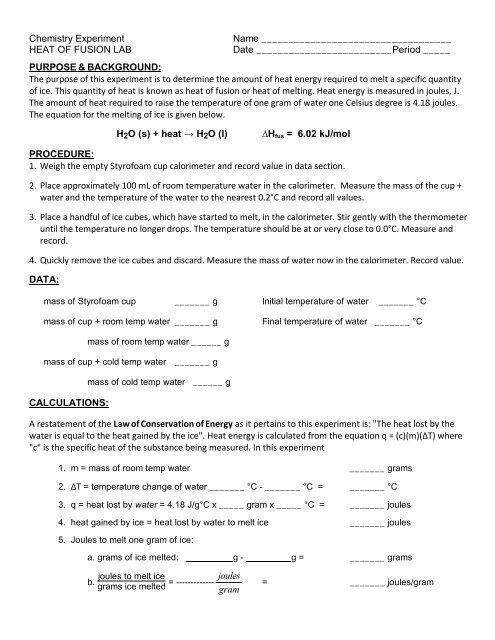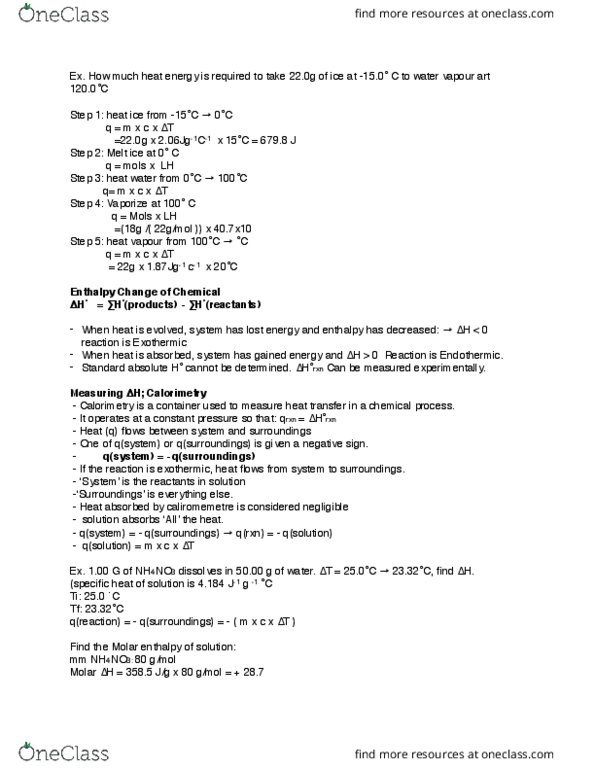Q Lost Q Gained
Posted : admin On 4/14/2022Question
- Q Lost Q Gained
- Calorimetry Simulation
- Calorimetry Simulation Lab
- Q Gained Q Lost Heat Transfer
- Calorimeter Simulation
Q Lost Q Gained
Q lost + q gain = 0. Ask a research question and design a series of experiments to provide data to answer the research question. Use experimental data to develop a relationship among the variables: heat, mass, specific heat, and change in temperature. Identify whether the process is exothermic or endothermic.
Imagine that you have 25 kg of 25 degrees Celsius water. You want to boil water on the stove and pour it into the rest of the water to raise the temperature.
How much boiling water would you need in order to raise the bath to body temperature (about 37 degrees Celsius)? Assuming that no heat is transferred to the surrounding environment.
- Calculate the heat lost by the engine: Q. F,engine) = (300 kg) (0.45 kJ/kg˚C) (200˚C – 150˚C) = 6,750 kJ. This must equal the heat gained by the antifreeze (assume the final temperature of the antifreeze is also 150˚C): Q. Gained = Qlost = 6,750 kJ. Use the energy equation to determine the.
- The equation is C= Q/M x delta T. C is the specific heat so. 4.184= heat energy/ mass of water x temperature change. We need more info dude.
Answer
This is a pretty straightforward calorimetry problem. The first equation to be useful here calculates the amount of heat that you will need to raise the water up to temperature:

Calorimetry Simulation
q=ms∆t
(Where q is the amount of heat, m is the mass, s is the specific heat, and delta T is the change in temperature).
Plugging and chugging with your values for your starting conditions you get:
q = (25000g)(4.184 J/gºC)(37ºC-25ºC)
Note that the specific heat is a value obtained from an outside reference and the mass had to be converted to grams to cancel units with the specific heat.
That gives you the amount of heat energy that you will need to raise your water to the desired temperature. Now, this value can be substituted in the above equation, along with the specific heat (constant) and a new delta T (equal to the difference in temperature between boiling water and the desired temperature of 37ºC) and solve it for the mass of water necessary to loose that much heat. Note that the heat energy is negative because it will be the heat that is given up by the water instead of absorbed like above.
Calorimetry Simulation Lab
m = -1255200 J / [(4.184 J/gºC)(37ºC-100ºC)]
m = 4762 g = 4.762 Kg
Q Gained Q Lost Heat Transfer
So, we calculated the amount of heat that it would take to raise the water from room temp up to 37ºC and using that as a starting point we calculated the amount of boiling water that would be necessary to give up the energy necessary to do the desired task while not lowering itself below 37ºC. Final answer has been rounded to match significant figures in specific heat of water, assuming 0's trailing decimal place in two values given in problem.
Calorimeter Simulation
Addendum -
Question
The heat lost by the boiling water is equal to the heat gained by the room-temperature water. How much heat was transferred in this process?

Answer
What you're asking for is just the value of 'q' in the question above in both instances when I used it. In the first equation that I solved, I was solving for how much energy needed to be gained by the water to raise it to the desired temperature (1255.2 KJ). In the second time the equation was used, I used this same value (1255.2 KJ) as the amount of heat energy that had to be lost by the boiling water to raise the 25 kg of water to temperature. Thus the answer you are looking for is 1255.2 KJ or 1255200 J.


Reference
Chang, Raymond. Chemistry. 6th ed. USA, McGraw-Hill. 1998